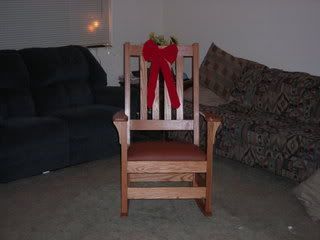I saw a snipet online of Norm Abrahms show 2011 for an outside chair (not the whole show). For the rear legs, he used an mdf template with router openings to make the mortises.
How do you make the tenons that have round sides? Or is he using loose tenons?
My project is a rocking chair. Is using loose tenons going to be less strong then a normal mortise/tenon approach?
Any thoughts?




 Reply With Quote
Reply With Quote















